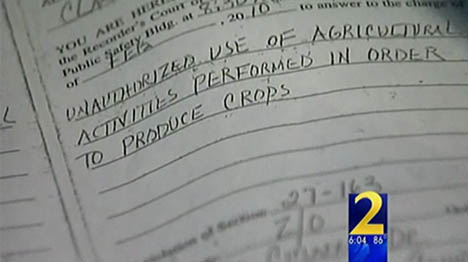“The justices have not struck down a major piece of legislation, let alone a president’s signature initiative, as beyond Congress’s power to regulate commerce in some 75 years.” That’s how Newsweek’s Stuart Taylor Jr. today all but argued that, political ideology of the Supreme Court’s majority aside, a Supreme Court decision declaring unconstitutional the “individual mandate” of ObamaCare is quite unlikely. But while Taylor may be right that no signature presidential initiative post-New Deal has been declared unconstitutional by the Court on the grounds that it violated the interstate commerce clause, he neglected to mention there are two key cases in the past 15 years where the Supreme Court did set outer limits to Congress’s exploitation of the commerce clause as a fountain of federal power. In 1995, a 5-justice majority in U.S. v. Lopez struck down a provision of the Gun Free School Zones Act of 1990 that made it a federal crime to possess a firearm in a school zone. Chief Justice Rehnquist wrote for the Court that “the possession of a gun in a local school zone is in no sense an economic activity that might, through repetition elsewhere, have such a substantial effect on interstate commerce…. Nor is it an essential part of a larger regulation of economic activity, in which the regulatory scheme could be undercut unless the intrastate activity were regulated.” What’s more, Rehnquist noted (emphasis mine), “To uphold the Government’s contention that 922(q) is justified because firearms possession in a local school zone does indeed substantially affect interstate commerce would require this Court to pile inference upon inference in a manner that would bid fair to convert congressional Commerce Clause authority to a general police power of the sort held only by the States.” In other words, if the Court had accepted the government’s rationale in Lopez, it would paved the way to destroy what is supposed to be an enumerated, limited federal power into a broader “police power” that is reserved for the several states of the Union. Similar arguments regarding ObamaCare are certain to be made before the Supreme Court should the case get that far. Five years later in United States v. Morrison , the Rehnquist Court drew on the precedent in Lopez to strike down a portion of the federal Violence Against Women Act — legislation championed by current Vice President and then-Delaware Senator Joe Biden — on the grounds that it was an improper application of the interstate commerce clause. Wrote Rehnquist for the Court (emphasis mine): The Constitution requires a distinction between what is truly national and what is truly local , and there is no better example of the police power , which the Founders undeniably left reposed in the States and denied the central government, than the suppression of violent crime and vindication of its victims. Congress therefore may not regulate noneconomic, violent criminal conduct based solely on the conduct’s aggregate effect on interstate commerce. Both Lopez and Morrison were 5-to-4 cases, but they are relevant case law for the question of whether the ObamaCare individual mandate violates the interstate commerce clause by jury-rigging it into a police power-granting clause for Congress.
More here:
Newsweek’s Stuart Taylor a Bit Misleading in Article on Court Challenge to ObamaCare
Posted in Hollywood, Hot Stuff, News
Tagged court, government, grounds, interstate, medical insurance, Obama, online media, politics, president, school, states, stuart taylor jr., TMZ, words, wrote-rehnquist





























